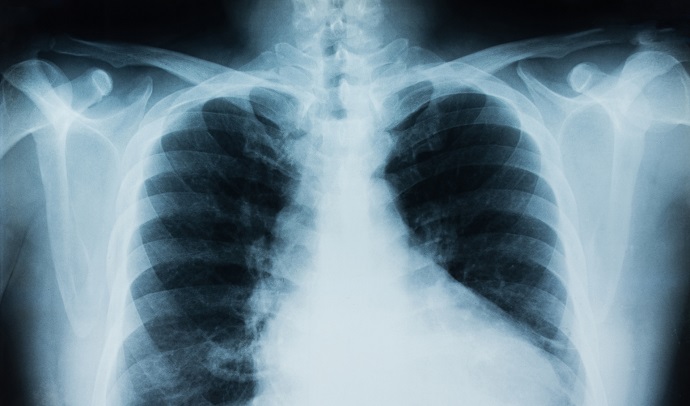How Medical Imaging is Boosting COVID-19 Detection, Prevention
Healthcare entities are increasingly leveraging medical imaging and imaging analytics to improve COVID-19 detection and prevention.

Source: Thinkstock
- With nearly every healthcare organization working to better manage and stop the spread of COVID-19, many have turned to medical imaging and imaging analytics tools to improve detection and prevention of the virus.
For more coronavirus updates, visit our resource page, updated twice daily by Xtelligent Healthcare Media.
In particular, institutions have focused on the use of CT scans to identify COVID-19 and accelerate treatment of the disease.
“CT scans can be a real game-changer in our global battle to end coronavirus,” said Yaneer Bar-Yam, PhD, President and Founder of the New England Complex Systems Institute, an independent academic research and educational institution.
“We need aggressive and bold actions to reduce transmission of COVID-19 to get ahead of the outbreak so that it is stopped. It will take the global community to accelerate how we meet these challenges.”
READ MORE: ACR, RSNA Caution FDA Against Autonomous AI in Medical Imaging
To reduce the spread of COVID-19 around the world, the New England Complex Systems Institute is partnering with the XPRIZE Pandemic Alliance to launch the COVID-19 CT Scan Collaborative.
The effort aims to significantly accelerate the use of CT scans for COVID-19 diagnosis and treatment. Because new radiology protocols typically take years to develop, this real-time collaboration will help radiologists around the world view anonymized CT scans to improve their results.
“We are thrilled to launch the COVID-19 CT Scan Collaborative, working with the XPRIZE Pandemic Alliance to ensure we use the expertise of XPRIZE and its network to be most successful,” Bar-Yam said.
Research teams that develop the most effective clinical protocol for the use of CT scans in fighting COVID-19 will receive awards from the $1.8 million fund. Leaders will judge whether projects are likely to improve COVID-19 detection, as measured against reduction of transmission.
Additionally, judges will look for research efforts that enhance the diagnosis, prediction, and management of the treatment of COVID-19, as measured by the reduction in the number of cases that progress from mild to severe.
READ MORE: One-Third of Orgs Use Artificial Intelligence in Medical Imaging
Teams interested in joining the competition can register at endcoronavirus.org/xprize.
“Facing the COVID-19 crisis is proving to be one of the world’s most critical challenges, as we currently rely on slow and invasive testing methods,” said Amir Banifatemi, chief innovation and growth officer at XPRIZE and lead of the XPRIZE Pandemic Alliance.
“We can accelerate critical response efforts and identify breakthrough solutions using CT scans for earlier detection. We look forward to supporting the COVID-19 CT Scan Collaborative to find a more reliable, effective detection method for the virus using CT scan technology.”
Other organizations are working to use CT scans and imaging analytics to accelerate COVID-19 solutions. NIH recently launched the Medical Imaging and Data Resource Center (MIDRC), a project that will leverage artificial intelligence and medical imaging to advance COVID-19 detection and treatment.
The effort will be led by the National Institute of Biomedical Imaging and Bioengineering (NIBIB), and will lead to the development and implementation of new diagnostics, including machine learning algorithms, to rapidly and accurately assess disease status.
“This major initiative responds to the international imaging community’s expressed unmet need for a secure technological network to enable the development and ethical application of artificial intelligence to make the best medical decisions for COVID-19 patients,” said Krishna Kandarpa, MD, PhD, director of research sciences and strategic directions at NIBIB. “Eventually, the approaches developed could benefit other conditions as well.”
Researchers from Mount Sinai have also recognized the potential for medical imaging to reduce the impact of the COVID-19 pandemic. In a study published in Nature Medicine, researchers showed that an artificial intelligence tool could quickly detect COVID-19 based on CT scans of the chest and patients’ clinical data.
This method could significantly improve COVID-19 identification, which is particularly important to keep patients isolated if scans don’t show lung disease when patients first present symptoms. COVID-19 symptoms are also often non-specific, so the virus can be difficult to diagnose.
Although CT scans are not widely used in the US for diagnosis, medical imaging and imaging analytics can still play a critical role in the pandemic.
“Imaging can help give a rapid and accurate diagnosis—lab tests can take up to two days, and there is the possibility of false negatives—meaning imaging can help isolate patients immediately if needed, and manage hospital resources effectively,” said Zahi Fayad, PhD, Director of the BioMedical Engineering and Imaging Institute (BMEII) at the Icahn School of Medicine at Mount Sinai.
“The high sensitivity of our AI model can provide a 'second opinion' to physicians in cases where CT is either negative (in the early course of infection) or shows nonspecific findings, which can be common. It's something that should be considered on a wider scale, especially in the United States, where currently we have more spare capacity for CT scanning than in labs for genetic tests.”
